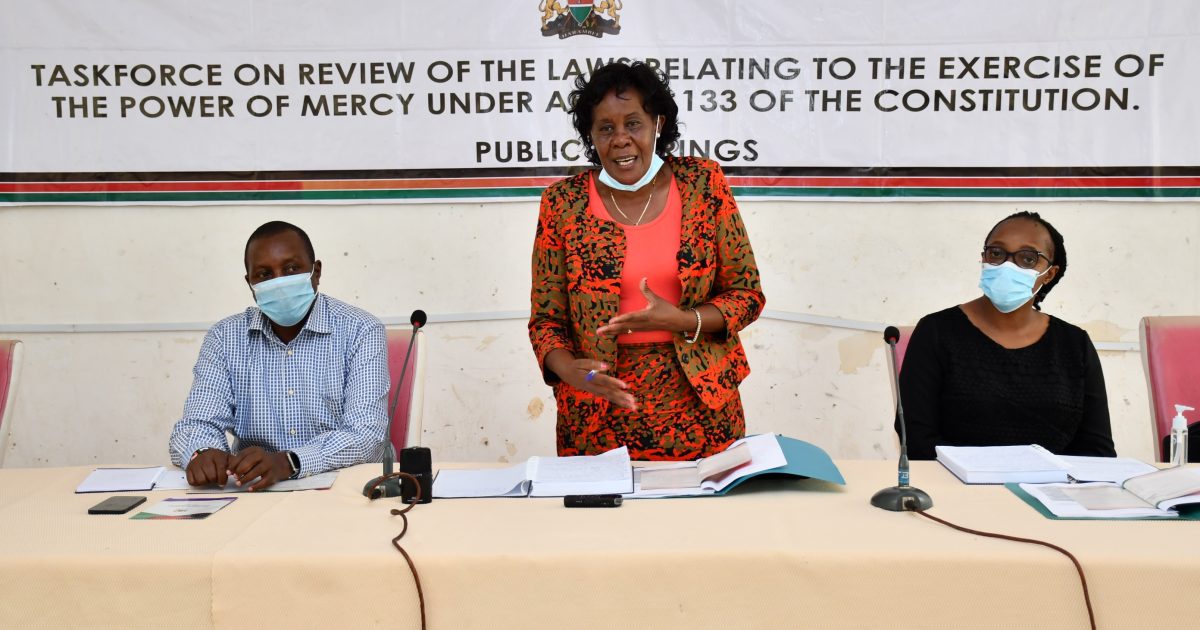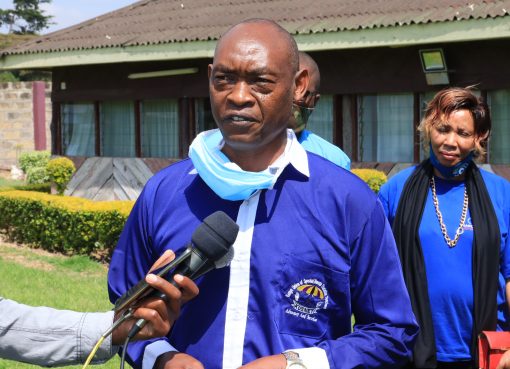The Power of Mercy Advisory Committee (POMAC) is seeking to create legal and policy framework for smooth implementation of Article 133 of the constitution of Kenya.
Speaking during a public participation forum in Garissa town on Wednesday, POMAC Chief Executive Officer Dr. Lydia Muriuki said that there was need to review the Power of Mercy Act 2011 to create more integrated framework.
“We need to have a clear definition of who we serve. The 2011 Act states that we can serve the prisoners and those in remands, but there is another group of people who have been detained for long that also want to be included,” Dr Muriuki said.
“There is also need to harmonize this Act with Prisons Act and create a multi-agency approach when it comes to handling petitions for people seeking Presidential mercy. This will create an open, transparent and inclusive process,” she added
Muriuki noted that there are concerns about how to help pregnant mothers, children and elderly people in prisons, who do not have support systems once released from jail.
Among the factors they consider in assessing a petition for pardon, include age of the convict, circumstances, nature and seriousness of the offence, period served, interest of the state or community and reports from prison and probation among others.
In their contribution, Garissa residents urged the committee to create a process that will help the ex-convicts get their certificates of good conduct at pardon.
They further asked the government to listen to victims or compensate them before pardoning the ex-convicts.
The committee has within its structure pardoned officers who are stationed at the correctional facilities and report on all matters related to power of mercy, including assisting applicants in the preparation of the petition and sensitizing prisoners on the power of mercy.
According to Power of Mercy Act 2011, once the recommendations are made, the President may grant a free or conditional pardon to a convicted prisoner, postpone the carrying out of the punishment, substitute a less severe punishment or remit all as part of the punishment.
However, a prisoner must have served at least one third of their prison term or 5 years for those serving life imprisonment.
By Erick Kyalo and Jacob Songok




